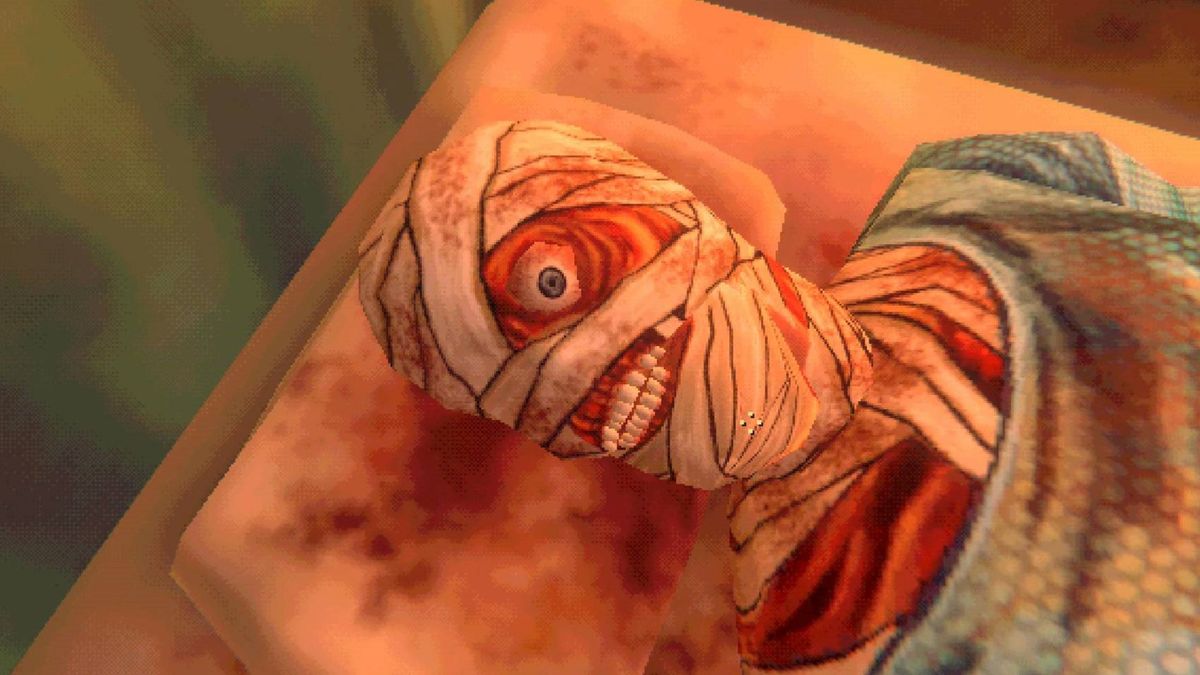Table of Contents
- 0.1 A Closer Look at Mouthwashing
- 0.2 The Challenge of Revenue Sharing on Streaming Platforms
- 0.3 Spotify’s Revenue Model Under Scrutiny
- 0.4 Artistic Aspirations and Future Projects
- 0.5 Broader Implications for the Music and Gaming Industry
- 0.6 Join the Conversation
- 1 How do you envision the future of indie artists navigating the evolving landscape of streaming platforms?
Headline: Indie Horror Soundtrack Hits One Million Streams on Spotify
Mouthwashing Sound Designer Celebrates Streaming Milestone Amid Revenue Challenges
In a notable achievement for indie gaming and music, Martin Halldin, the sound designer behind the atmospheric soundtrack of the horror game Mouthwashing, recently celebrated one million streams on Spotify. However, Halldin humorously highlighted the platform’s notorious revenue-sharing model in a recent tweet, revealing that he might only afford "like two hot dogs with the revenue." The irony of artistic success combined with financial hurdles has sparked conversations within the tech and gaming communities on the sustainability of creative careers in today’s digital landscape.
A Closer Look at Mouthwashing
Released as part of the February 2024 Steam Next Fest, Mouthwashing has garnered attention not only for its eerie gameplay but also for its poignant commentary on death and corporate bureaucracy. The game offers players a haunting exploration of existential themes wrapped in a unique indie horror package, making it a standout title among countless new releases.
Halldin’s work on the soundtrack has received acclaim for its ability to enhance the game’s immersive atmosphere. While gameplay is integral to the experience, a compelling soundtrack often sets the emotional tone and amplifies the narrative’s intensity—a fact not lost on the gaming community.
The Challenge of Revenue Sharing on Streaming Platforms
Despite the success of reaching a million streams, Halldin shared that he currently hasn’t seen any significant financial gains from Spotify. "I currently haven’t made anything from the Spotify streams because the company hasn’t reported back to the service I use to distribute my music," he stated. This lack of transparency can leave artists in a precarious position.
In a further breakdown, Halldin estimates that he could potentially earn around $4,000 from the streams, which he describes as "similar to a decent month’s salary." Yet he clarified that "all of it goes back into Wrong Organ," his independent studio, indicating his commitment to reinvesting in future projects rather than capitalizing on immediate financial gain.
Spotify’s Revenue Model Under Scrutiny
The discussions surrounding Halldin’s experience tap into larger concerns about the sustainability of music creation in the digital age. Spotify, like many streaming services, operates on a model that typically rewards larger labels and established artists disproportionately compared to independent musicians. As a result, many emerging artists find themselves navigating an ecosystem that’s often unbalanced concerning revenue distribution.
Industry experts have pointed out that this model poses significant challenges, especially for indie developers and artists trying to carve out a livelihood from their creative endeavors. The lack of substantial returns from high play counts illustrates a critical flaw in how digital content is monetized, raising concerns about the future of indie music-making and game development.
Artistic Aspirations and Future Projects
As Halldin looks to the future, his focus remains on expanding his contributions to the indie game scene. "I want us to have a longer runway to make more stuff," he commented, underscoring his dedication to his craft and the community he serves. His experience serves as a reminder of the passion that fuels many in the arts, who often prioritize creativity over immediate financial reward.
Broader Implications for the Music and Gaming Industry
Halldin’s predicament touches on broader themes within both the gaming and music industries: the balance between artistic expression and financial viability. As platforms continue to evolve, the hope is that artists will find more sustainable channels to share their work and benefit from it accordingly.
For those interested in exploring Mouthwashing and supporting indie game creators, platforms like Steam and itch.io provide access to innovative titles that may not receive mainstream attention but offer enriching experiences nonetheless.
Join the Conversation
What do you think about the current state of revenue sharing on platforms like Spotify? How can independent creators better navigate these challenges? Share your thoughts and insights in the comments below. For more articles on gaming and technology, be sure to check out our other features on Shorty-News.
For additional reading on the impact of streaming services on the arts, visit reputable sources like TechCrunch and The Verge.
World-Today-News Editors: Congratulations on reaching this great milestone, Martin! We’ve been following you and your work closely. Tell us more about the process of creating the soundtrack for Mouthwashing, and what inspired you to take on this project.
Martin Halldin: Thank you! The creation process for the Mouthwashing soundtrack was pretty straightforward. I wanted the music to be immersive and atmospheric while supporting the game’s narrative and themes. I started by experimenting with different soundscapes and textures, focusing on creating an emotional journey for the player. The game, itself, deals with dark themes like death and bureaucracy, so I tried to create a score that captured the unease and despair that such themes can evoke. It was a challenging project, but I’m glad people are enjoying it.
World-Today-News Editors: You’ve brought up an interesting point about the revenue-sharing model on streaming platforms like Spotify. Can you explain what you mean by “all of it goes back into Wrong Organ”?
Martin Halldin: Sure. All the revenue generated from the soundtrack goes back into my independent studio, Wrong Organ. This includes royalties from sales of the soundtrack and any merchandise related to the game. We use this revenue to fund future projects and improvements to our studio. We believe in reinvesting in our creative work and the community we serve rather than focusing solely on immediate financial gain.
World-Today-News Editors: That’s admirable. Given the current state of streaming platforms’ revenue-sharing models, do you think indie artists like yourself have any alternatives to promote their work and potentially earn more?
Martin Halldin: It’s definitely a challenge. Since the release of Mouthwashing, we’ve tried to diversify our distribution methods by offering the soundtrack on Bandcamp and other platforms that have a more favorable revenue split. I think the key is to explore different avenues and find ones that work best for you. Word-of-mouth and social media can also be powerful tools for reaching new audiences and building a fanbase.

